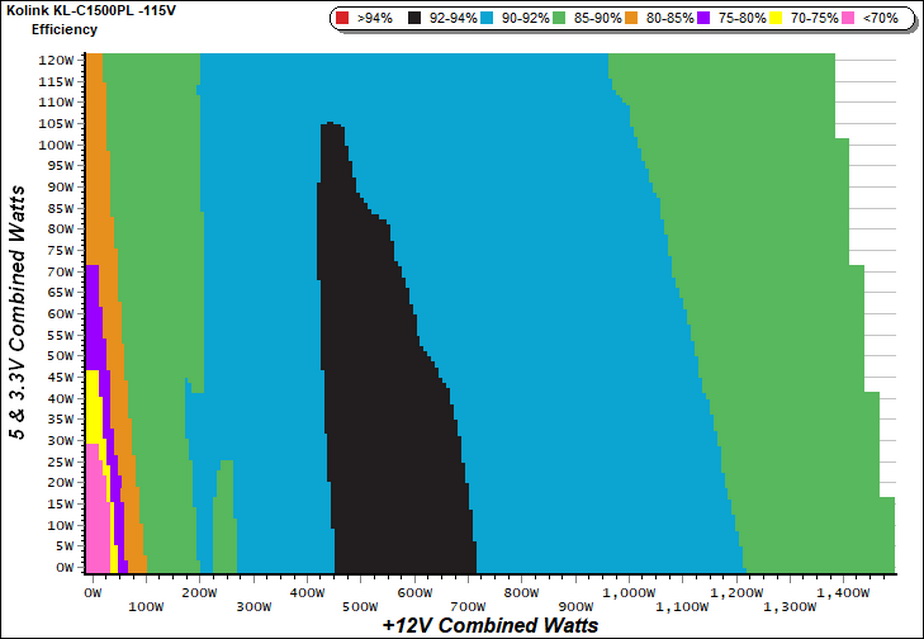Kolink Continuum KL-C1500PL PSU Review: Miner's Delight?
Why you can trust Tom's Hardware
Cross-Load Tests & Infrared Images
Our cross-load tests are described in detail here.
To generate the following charts, we set our loaders to auto mode through our custom-made software before trying more than 25,000 possible load combinations with the +12V, 5V, and 3.3V rails. The load regulation deviations in each of the charts below were calculated by taking the nominal values of the rails (12V, 5V, and 3.3V) as point zero. The ambient temperature was between at 30°C (86°F) to 32°C (89.6°F).
Load Regulation Charts
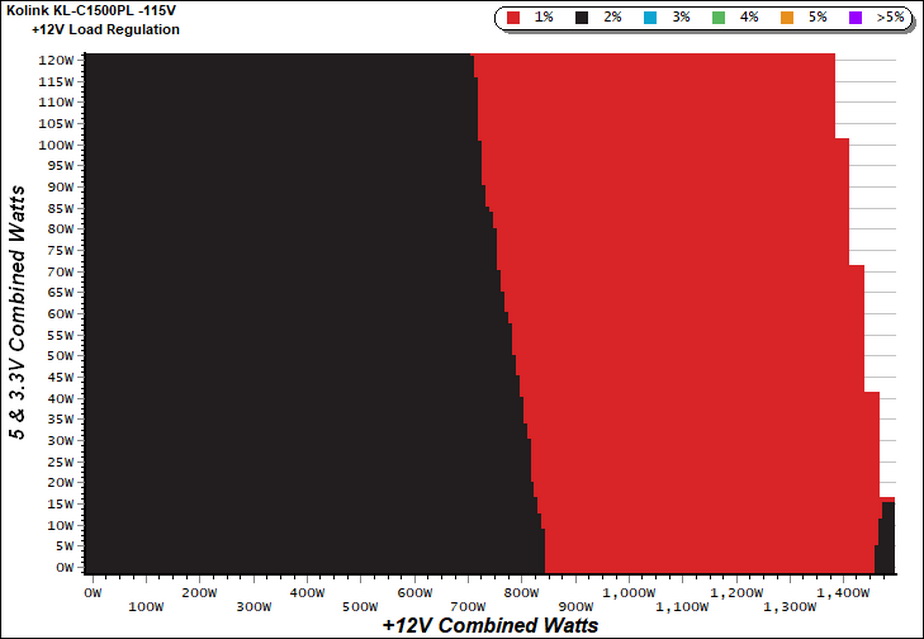
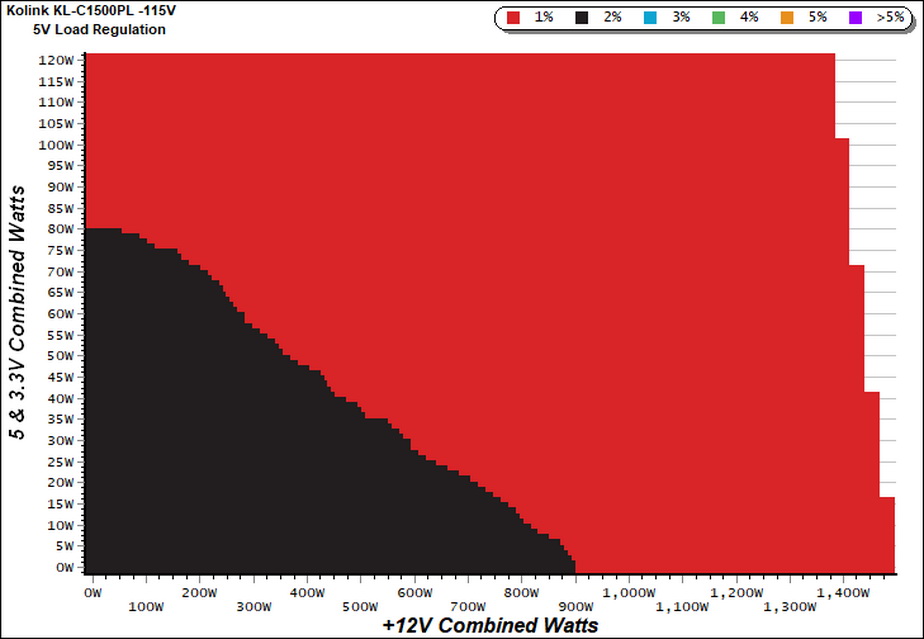
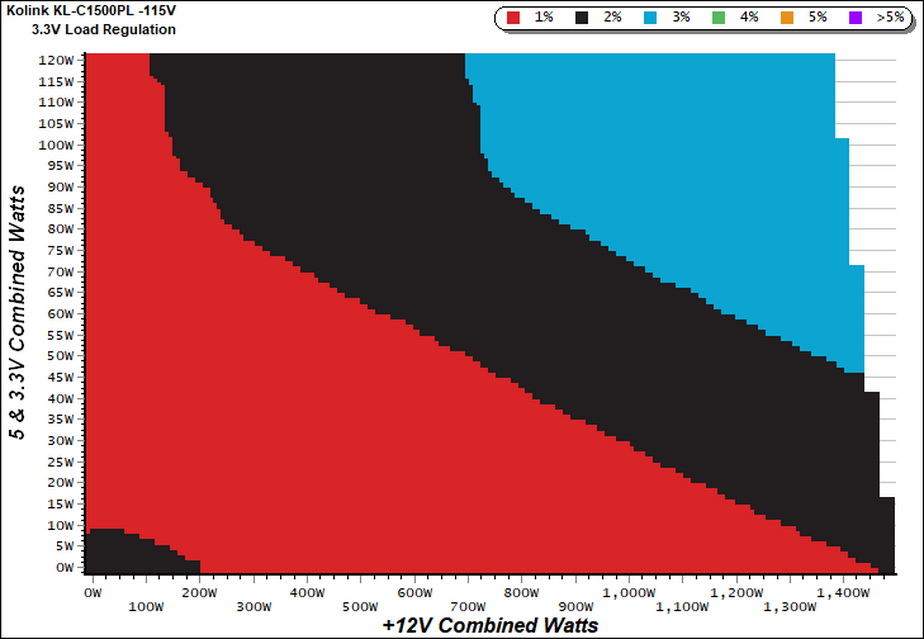
Efficiency Chart
The efficiency sweet spot is between 450W and 720W, with load on the minor rails being quite high. There is a large region where efficiency is within 90-92%, and with more than 1210W load at +12V the efficiency is between 85-90%.
Ripple Charts
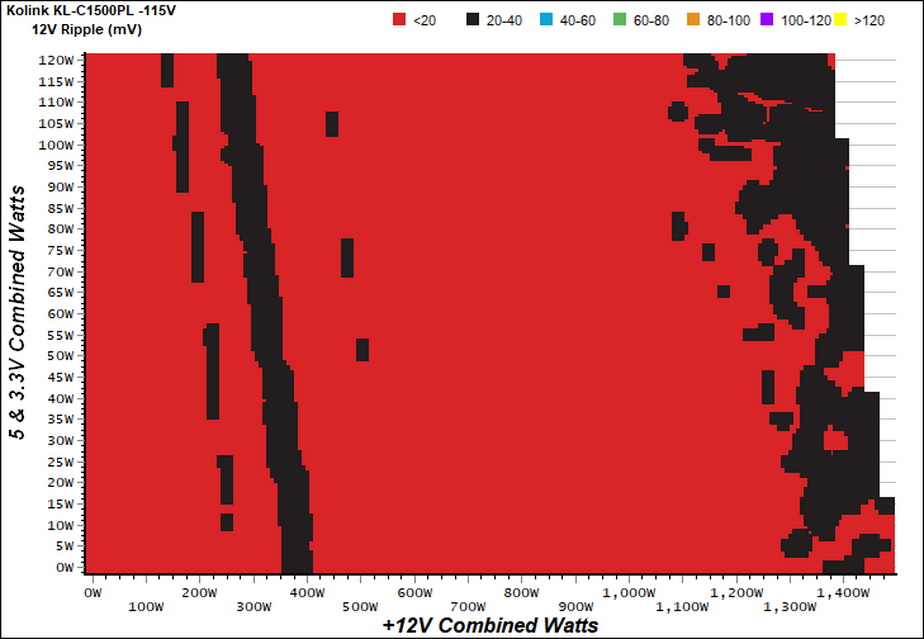
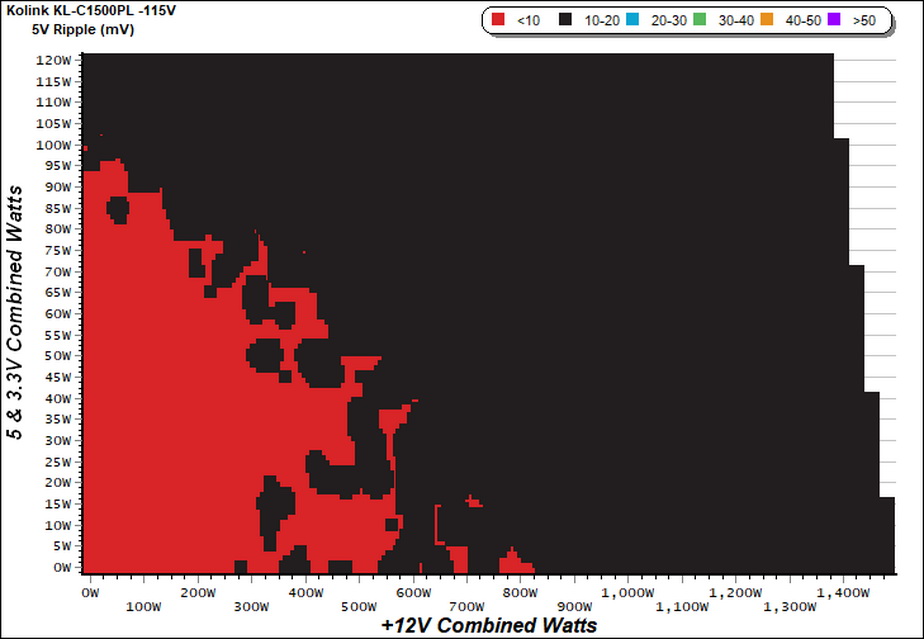
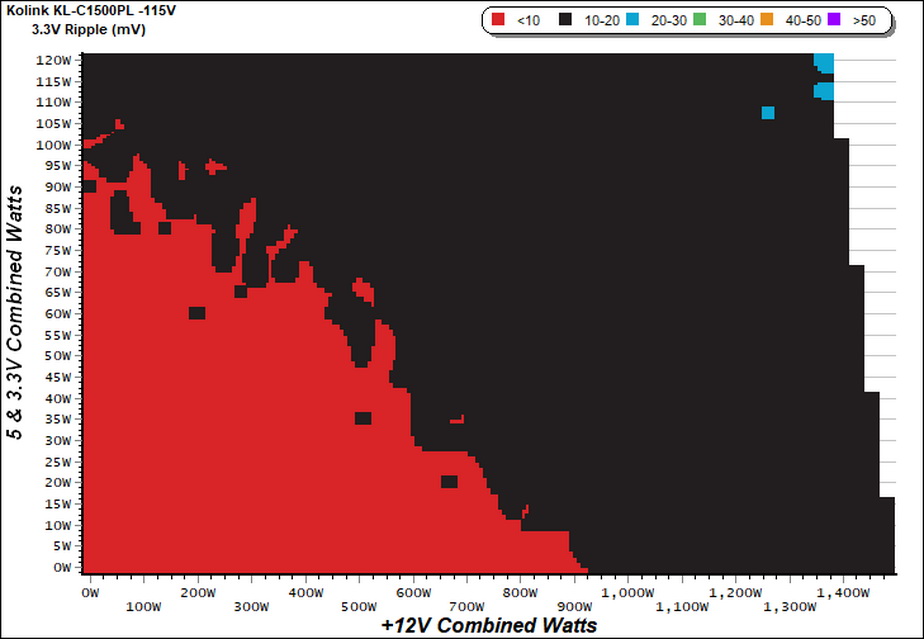
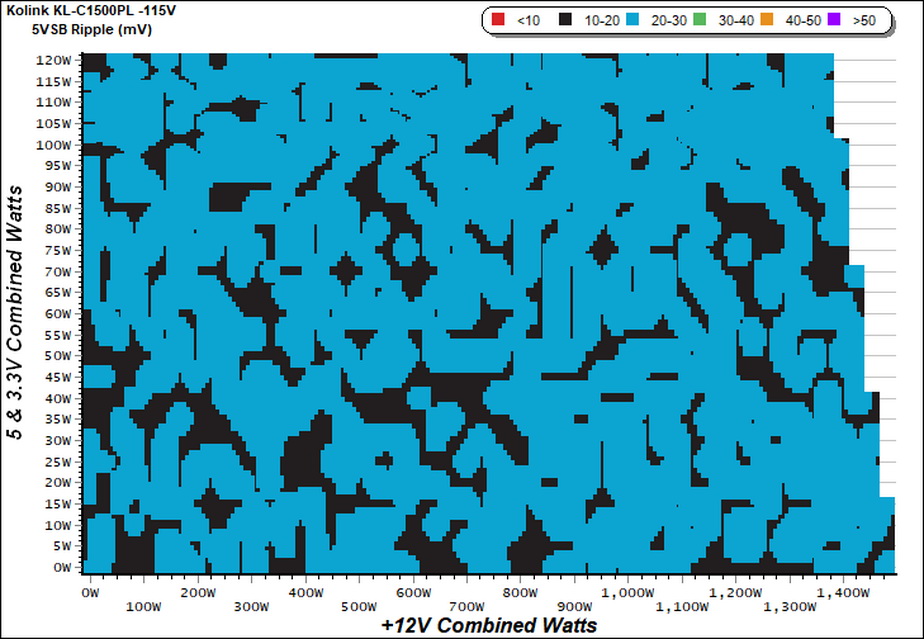
Infrared Images
We applied half-load for 10 minutes with the PSU's top cover and cooling fan removed before taking photos with our modified FLIR E4 camera that delivers 320x240 IR resolution (76,800 pixels).
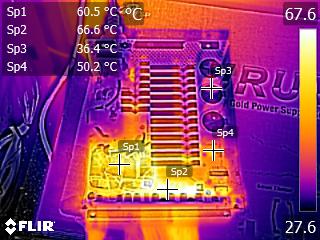
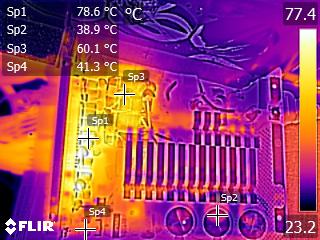
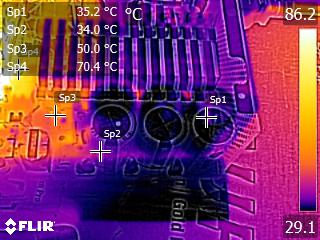
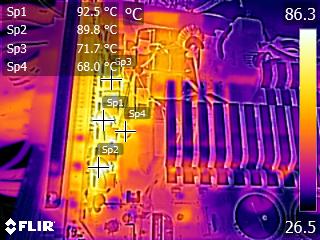
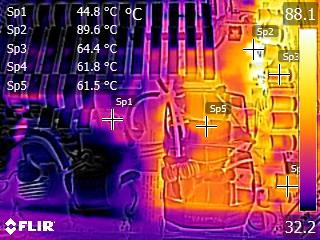
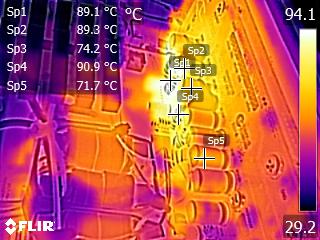
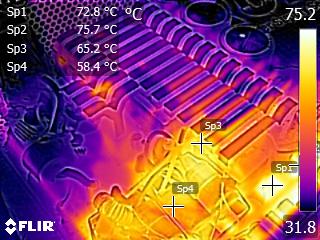
We apply lots of stress to the minor rails (over 20A of current output for each), so temperatures on the DC-DC converter board are sky-high. But under real-life conditions, those rails won't deliver anywhere near this amperage, even in extreme usage scenarios. Everywhere else, the temperatures are at low levels.
MORE: Best Power Supplies
MORE: How We Test Power Supplies
Get Tom's Hardware's best news and in-depth reviews, straight to your inbox.
MORE: All Power Supply Content
Current page: Cross-Load Tests & Infrared Images
Prev Page Protection Features Next Page Transient Response Tests
Aris Mpitziopoulos is a contributing editor at Tom's Hardware, covering PSUs.
-
ozicom "The problem we see is that all eight-pin connectors have the same pattern, making it possible to accidentally connect an EPS cable to a PCIe socket and vice versa." Well I had a fully modular PSU in past and you can't connect eight pin of EPS to PCIe because the sockets may look same but they're not. If you look closer on top left two sockets of black and blue eight pins the notches are not same so you can't connect it. But if you tried and connect it it's a problem of course.Reply
